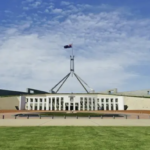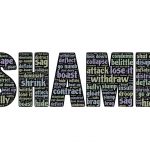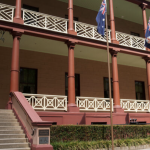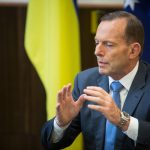What Is Parliamentary Privilege in Australia?
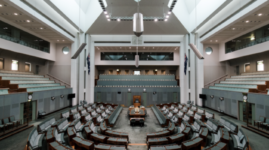
Independent Senator Lidia Thorpe recently made allegations of harassment and sexual assault against Liberal Senator David Van during a parliamentary debate.
Although two other women has since also accused Senator Van of sexual misconduct, Ms Thorpe’s statement that she will not make a formal complaint to police or otherwise pursue the matter outside parliament means Mr Van will not have the opportunity to meet the allegations in a court of law; a situation which has the potential to undermine due process as well as the presumption of innocence.
Indeed, statements made by politicians in parliament are protected by ‘parliamentary privilege‘ – a unique protection against adverse legal consequences over statements made in the Houses of Parliament.
The following explains the origins of parliamentary privilege, how it works in practice and notable cases of politicians making allegations in parliament which, if made elsewhere, could expose them to a claim for defamation or even amount to a criminal offence against public justice.
The Origins of Parliamentary Privilege
Parliamentary privilege has its origins in the battles between parliament and the monarch in 17th century England.
The case of R v Eliot, Holles and Valentine (1629) 3 St Tr 294, involved three members of parliament who were prosecuted during the Reign of King Charles I for allegedly seditious statements they made in parliament. These statements concerned complaints of illegal taxation. The politicians were imprisoned in the Tower of London, where Sir John Eliot died in 1632 and the other two were detained for 11 years. In 1668, Eliot’s conviction was reversed by the House of Lords, which regarded it as illegal and against the freedom and privilege of parliament.
To protect against future harassment by the King, Article 9 of the Bill of Rights 1689 was enacted, which provided:
That the Freedom of Speech and Debates or Proceedings in Parliament ought not to be impeached or questioned in any Court or Place out of Parliament.
This tradition was subsequently inherited by Australia and is now encompassed by a number of special legal rights and immunities which apply to each House of the Parliament, its committees and members.
The Scope of Parliamentary Privilege
The Parliamentary Privileges Act 1987 (Cth) has codified the parliamentary tradition of privilege, providing a number of immunities for speech.
The Act provides that each House, its committees and members have the ability to speak freely without fear of prosecution (known as the privilege of freedom of speech). This includes immunities from civil and criminal liabilities for what they say or do in the course of parliamentary proceedings.
Parliament does have its own internal mechanisms to allow for the punishment (including fining and imprisonment) of politicians for misuse of parliamentary privilege, however, in practice, this rarely occurs. Generally, misuse of parliamentary privilege or misconduct is dealt with by obliging politicians to apologise for their behaviour.
For example, when Senator Bill Heffernan made allegations in parliament in 2002 that Justice Michael Kirby (then, sitting on the High Court) was soliciting underage prostitutes, he apologised to the house for his behaviour but received no further sanction.
Misuse of Parliamentary Privilege
There have been a number of high profile cases of politicians using parliamentary privilege to subvert the norms of criminal procedure and the integrity of the criminal trial.
In 2016, then newly elected Senator Derryn Hinch used his maiden speech to name four men he says are convicted paedophiles whose names were subject to court suppression orders. He called the men ‘human vermin, scumbags, and degenerates’ and promised to continue to use the privileges afforded in parliament to subvert court processes.
In 2018, Liberal MP Andrew Hastie used parliamentary privilege to accuse the Chinese Community Party of of covertly seeking to influence Australia’s media, universities and politics.
In 2021, NSW Labour politician Trish Doyle MP used parliamentary privilege to reveal she had been contacted by a woman who alleged that she had been sexually assaulted by an MP in Berejiklian’s government. This was subsequently revealed to be Nationals’ Upper Hunter politician Michael Johnsen MP. Johnsen resigned from parliament due to subsequent allegations of misconduct, but was not charged with any crime related to the original complaint.

